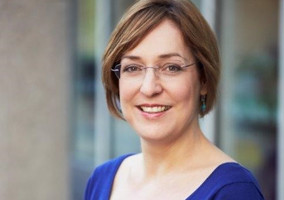In my previous job at Charity Finance Group we had a saying when it came to engaging the board on financial management: finance is too important to be the preserve of the finance director, the finance and audit committee, and the treasurer. All trustees need some degree of understanding about a charity’s financials or how can they govern effectively?
The same is true of communications. In your board, you have a ready-made group of people who are deeply invested in the work of your organisation. They’re your trustees for a reason: passionate about your cause and committed to supporting the executive team to deliver the best outcomes - they’re very likely to be your most powerful advocates. They will also have their own professional and social networks, with people whose interests could well intersect with those of your charity.
In short, they have a great deal of potential to raise awareness and build your brand - you could even think of them as a touchpoint. And like all comms touchpoints, they need to be optimised! So what can you do to develop the skills and confidence in your board so that they can engage stakeholders by starting conversations and making introductions? Here’s my five-point plan:
1. Make sure they understand the importance of communications
Is communications on the agenda and if so, is high up enough? Do you contribute to the board reports, papers and regular update newsletters? If not, offer a summary of what progress has been made since the last update or board meeting. Share an executive summary of the comms strategy and create a simple dashboard with topline metrics and links to press coverage. If you’re lucky enough to have a trustee with experience of comms, brand or marketing on the board, aim to get them onside. If you’re not familiar with the personalities and perspectives of those on the board, they’ll be able to help, add value to your work, and be an important ally in getting comms higher up the agenda .
2. Carry out a quick comms health check...
It sounds obvious, but are trustees familiar with the fundamentals: your core proposition; vision; mission and strategy? Make sure these are included as part of their induction and importantly, with the average trustees term being around three years, make sure that any subsequent revisions are shared and understood. Use them as a sounding board (excuse the pun). If they trip up with your proposition, struggle with jargon or aren’t clear on any elements of your messaging, it’s highly likely that your target audiences will too. Consider a short workshop at a board meeting - it will help surface some of these issues and give you a good evidence-based platform to build on.
3. ...followed by a skills audit
In the same way some people aren’t comfortable with the financials, some may not be confident with communications. Where are the skills gaps? Do they have the tools at their fingertips? Consider training, maybe a one-to-one or paired exercise if it’s around nailing the elevator pitch, a session on social media or full-blown media training if they’re designated spokespeople. If you’re planning any informal or formal training for the team, think about whether it could be scaled up to serve your board (one of the few benefits of Zoom is that this is very easy to rollout!).
4. Create a trustee toolkit
Have your trustees got everything they need at their fingertips? A simple core comms toolkit could include: logos and lock-ups; simple style guidelines; URLs; social media handles; boilerplate; vision; mission; strap; case for support; testimonials; images; videos; infographics; and email addresses/phone numbers of the executive team. If you’re running a campaign, upload your campaign toolkit, graphics, campaign hashtags, links and make suggestions for social media posts. Use G-suite or Dropbox to share the toolkit, and be sure to test, refine, keep it up to date and remind them it’s there!
5. Cultivate and steward
Remember to keep expectations in check, be realistic! Keep it simple - their role is opening up the conversation, finding the point of entry and generating sufficient interest for that person to want to know more. But it’s not just about their contacts book. Trustees can help refine messaging, generate ideas, road-test campaign messaging with friends and family, and I’ve even deployed trustees for user testing of a new website! And as always, invite feedback, give feedback, even if it didn’t go quite the way you wanted it to, and finally, thank them!
Kate Bines is strategic communications and engagement manager at the Spirit of 2012
Related articles












